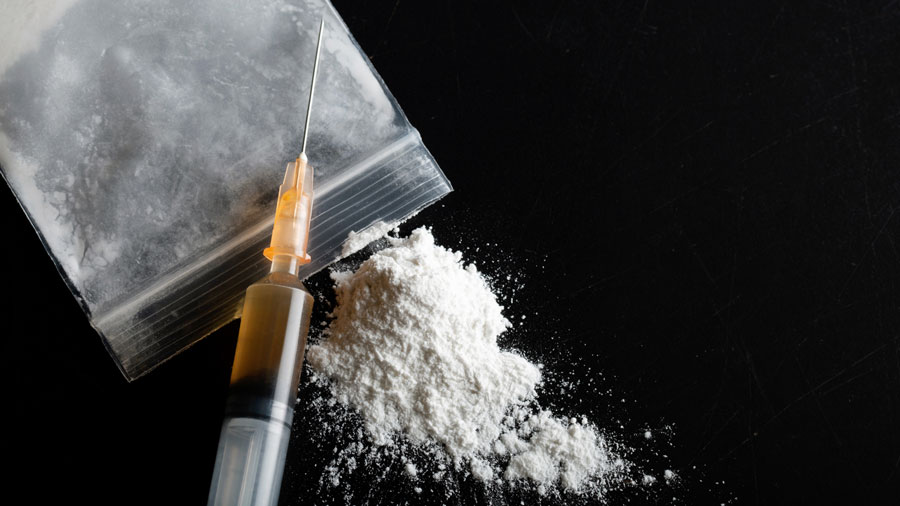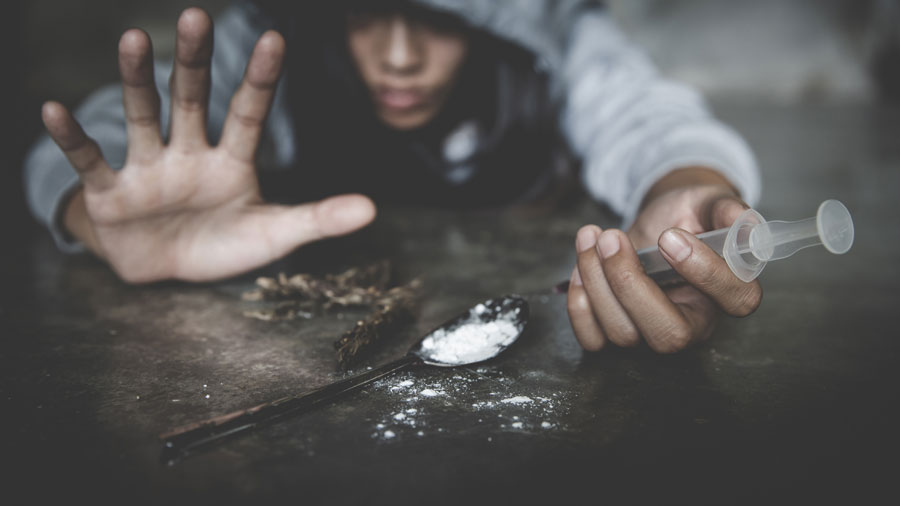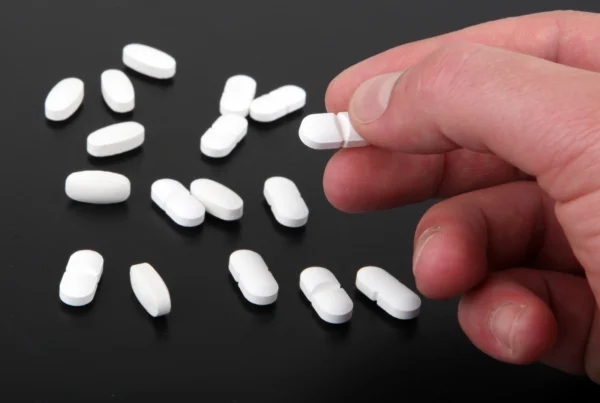
Table of Contents
Key Points
- Heroin is a powerful opioid made from morphine.
- Most people inject this substance into their arms.
- Heroin is often mixed with crack cocaine.
- Many people who abuse prescription opioids may eventually start using heroin.
Heroin has a very short half-life of only 30 minutes. After 30 minutes, half of the heroin dose you took will already be out of your system. But the science behind this drug is not always so straightforward. Other factors often go into the exact length that heroin stays in your system.
The Lifespan of Heroin in the Body
How long does heroin stay in your system?
The time it takes for a drug to be removed from the body will depend on a person’s metabolism.
Some people are naturally born with very fast metabolisms, and they can clear drugs from their system quickly. Others may have slow metabolisms and take much longer to remove the same drug.
There is also some discourse among scientists regarding the exact half-life of heroin. Some believe it is around 30 minutes, while others insist it is less than 10 minutes. Again, this variation likely involves the speed of a person’s metabolism. It may also involve the heroin’s ingredients, especially if it contains excessive fillers.
Tests for Detecting Heroin
As long as there is heroin in your body, drug tests can pick it up. There are many different types of blood tests, such as those for hair follicles, blood, urine, and saliva. It is also possible with modern technology to look for heroin metabolites created by the liver. These metabolites stick around longer than heroin in other forms.
If you take heroin and wait two days, the drug will not be detectable in your urine. Blood and saliva tests aren’t very reliable for detecting heroin. The drug will disappear from these fluids in six to seven hours. In some cases, heroin may still be detected in both blood and saliva after 48 hours, but this is rare.
Hair follicle tests are the most reliable for detecting long-term heroin use. Follicles can reveal heroin use up to three months ago. If the person using heroin has used it for many months or years, this test may be able to date heroin use much farther back than three months.
This is likely because heroin will build up in a person’s fatty cells rather than being flushed out through the blood or urine.
Heroin Misuse and Statistics
Of all the overdose deaths in 2020, 75% involved opioids.[1] Heroin is one of the most addictive opioid drugs out there. It is also one of the most dangerous. It is a highly illegal Schedule I substance. Few people choose heroin as their first drug to misuse. They may start with prescription drugs like opioid painkillers.
They may then move on to other substances until they arrive at harsher options, like heroin. Heroin comes from morphine, a drug often used in hospitals to anesthetize patients. It is particularly good at relieving pain after surgery and helping those with painful health conditions.
Unfortunately, all opioids have a very high potential for abuse.
Some may get addicted to morphine and feel they need more, so they may move on to heroin. In 2020, 13,000 people died specifically from taking heroin.[2] But why is this drug so dangerous and addictive, especially compared to other opioids?
The Addictive Nature of Heroin
Heroin works by interacting with the pleasure center in the brain. The brain naturally produces “feel-good” hormones like serotonin and dopamine. These hormones are important for ensuring that a person’s mood, memory, and other functions remain balanced. They are released in greater quantities when a person does something pleasurable, such as eating good food or exercising.
When a person takes heroin, the drug hijacks the brain’s ability to produce these hormones. The brain instead relies on the intense feelings of pleasure (euphoria) that the drug creates. The more often a person uses these drugs, the more dependent the brain will become on them to function.
If a person suddenly stops using heroin, the brain will go into intense withdrawals. This causes nausea, vomiting, confusion, delusions, anxiety, and paranoia. It may sometimes cause people to become violent or psychotic. The brain has to relearn how to function by producing its hormones rather than relying on the presence of heroin.
Because the withdrawal symptoms are so unpleasant, most people don’t want to go through them and continue using heroin instead.
The Dangers of Heroin Use
Some people think that abusing heroin isn’t that big of a deal. They may feel intense euphoria and believe the drug can’t be all bad if it makes them feel good. However, this euphoria is one of the most dangerous functions of the drug. It promotes further use, which can lead to various health issues.
Those who use heroin for months or years will inevitably experience brain and organ damage. Some of the long-term dangers include heart infections, kidney and liver disease, depression, collapsed veins, and abscesses.[3] Many people experience permanent mental health changes, such as psychosis, mood changes, anxiety, and paranoia.
There is also the very real risk of overdosing. Many people accidentally overdose because they don’t know how much their bodies can take.
Heroin Overdose
An overdose will occur when a person takes too much heroin at one time. It can also happen if you mix heroin with other potent substances, such as alcohol or other opioid drugs. A heroin overdose will make a person confused, dizzy, nauseous, and panicked. The person may then fall unconscious, and waking them up may not be possible.
Many people die from overdoses because their heart stops or they stop breathing. Their breathing may be very shallow, and their heart rate will be slow. Others may have seizures or heart attacks. If a person doesn’t die from the overdose, they may be left with permanent damage to their brain or organs.
Know the Facts About Heroin
Heroin is undoubtedly one of the most dangerous drugs out there. Despite that, many people continue using it, and many die yearly from heroin overdoses. Heroin use should be avoided, along with all other illicit drugs, if you care about your health. If you have a heroin problem, you can also overcome it with professional addiction treatment.
Frequently Asked Questions
Below are some of the most frequently asked questions about heroin.
OCEAN RECOVERY EDITORIAL GUIDELINES
The internet contains a vast amount of misinformation, but when it comes to your health only peer reviewed, research centered data matters. At Ocean Recovery, all content published throughout our website has been rigorously medically reviewed by a doctorate level clinician, and cross checked for medical accuracy. Our editorial process helps our readers trust that the information they are consuming is factual and based upon scientific data. Your health is our top priority, find out more about how we safeguard the integrity of information on our website. Read More About Our Process





